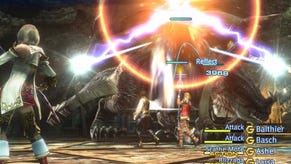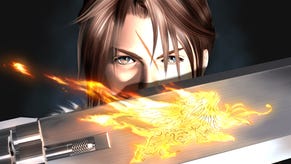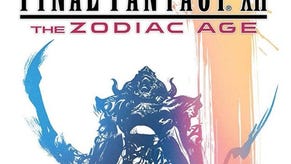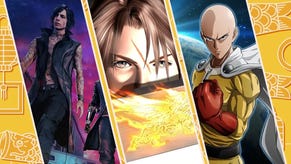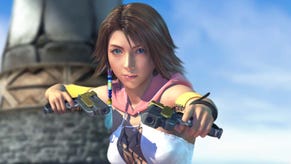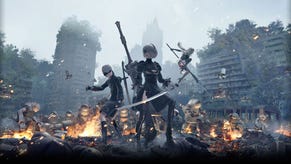This Great Fantasy
Akitoshi Kawazu on producing FF XII.
The Skies Above
Having created the world of Ivalice in Final Fantasy Tactics and Vagrant Story, Matsuno also chose to set Final Fantasy XII - a much more detailed and involved tale - in that universe. However, previous Final Fantasy games have always invented new worlds in which to tell their stories - so didn't the team find it restrictive to be working in a world with which some players would already be familiar?
"I don't think that you could really say it was restricting," Kawazu responds. :Although it is in the same world that titles like Final Fantasy Tactics and Vagrant Story took place in, it is somewhat different from those worlds - and as we were making Final Fantasy XII, we took liberties with it. So for example, you'll see summon creatures that are different, such as Exodus from FFV, and things like that."
He pauses for a second. "As we were going along, of course, we used it as a basis," he concludes. "But we didn't allow it to restrict the creative license."
Building Ivalice, while it was informed by previous games to be set in the world, involved drawing inspiration from many sources. While Final Fantasy X was largely influenced by designs and culture from Okinawa and nearby Pacific islands, for Final Fantasy XII, the designers looked further afield.
"The art directors on this game, like Minaba-san and Yoshida-san - unlike FFX, they wanted to make a very broad game with a lot of different cultures present in it," Kawazu says. "Although there are certain specific regions in the real world that are used for inspiration, for example Istanbul in Turkey - that's one source they drew on for a lot of their stuff - they really wanted every region and every kingdom in it to have its very own unique feel."
Another element of the game which draws on a rather more international set of influences than previously is the voice acting - with the conventional all-American cast being replaced with one which boasts many English and Scottish actors in key roles. While detractors will point out that several of the Evil Empire type characters are English - a common theme in US films - several of the heroes also have English accents, and the spread of different regional accents in the game is massive.
"Basically, that came about as a result of the localisation staff's desire to put in very specific accents and dialects for different regions in the game," Kawazu says. "From our perspective in the development team, since, as I mentioned earlier, from an artistic and design standpoint we really wanted to have a lot of different cultures present in the world of the game, we felt that this was actually a really good match for the game that we had created."
Winning the Rainbow
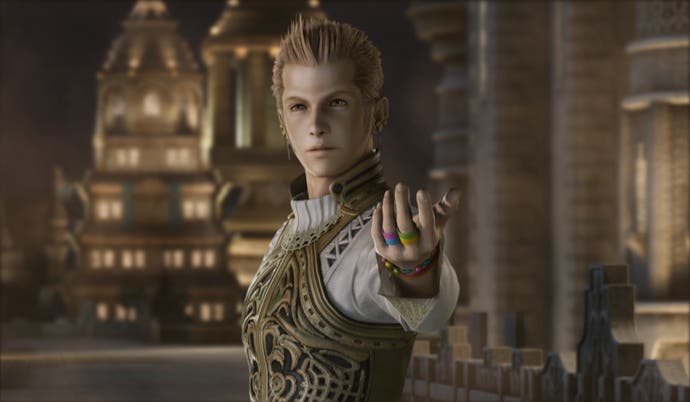
Speaking of localisation, there's a strong feeling throughout the game that Final Fantasy XII marks a return to an almost European martial theme; one which, perhaps, will be more accessible to many gamers in the West than the Gaia-philosophy of previous games. Is this a conscious decision, given the growing success of the series in the West? Does Square Enix now take care to make games for the world, rather than just for Japan?
Not according to Kawazu - who claims that the firm had never really made games just for Japan in the first place. "When we're making the game we really don't think in terms of Japanese players, American players, European players," he says. "I think if you stop and start looking at features, and saying, this will work in Japan, this won't work in America, this will work in America but won't work in Japan - then it's very difficult to make anything at that point."
"Ultimately, we're making all of our decisions based on what we think will make for the best game," he concludes. "I think this is something that's true not just in gaming, but in general when you're creating something - you have to make something that first and foremost, you think is appealing and is going to have an interest to people. In that regard, we really don't think about what particular market group we're developing something for."
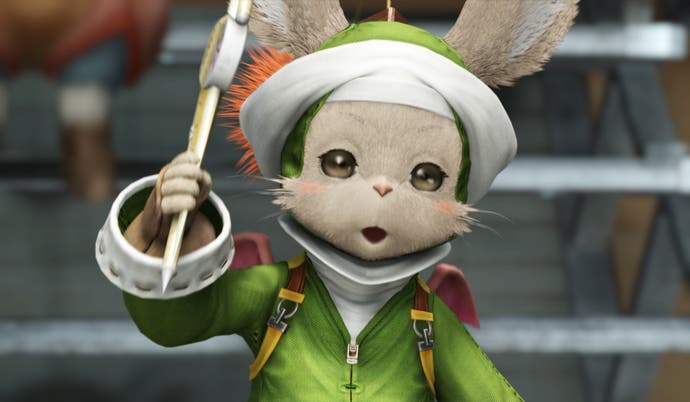
One market group that is feeling hard done by regarding Final Fantasy XII, however, is Europe - where the game won't be seen until early next year, almost twelve months after the Japanese launch. This has the distinct feeling of being back to the Bad Old Days of incredibly slow localisation - so why the hold up, and is this going to be a recurring problem for Square Enix?
"Naturally, in a perfect world, we would also love to have the game released simultaneously worldwide," Kawazu concedes. "Realistically speaking, there are a lot of reasons that make that impractical. One of those is of course the sheer volume of the content in the game - it's very huge. Another is that the Japanese development team working on the Japanese game are the same people working on all of the localised versions as well, and so, on the one hand, up until the point when the Japanese version is released, they really want to focus on getting that version to have every feature that they want in it and to be as perfect as possible. Up until that point it's very difficult to start working or thinking too much about the localisation side of things."
"For them, too, though, it's frustrating to have to work on it for another year after the launch of the Japanese version - there's a real feeling of, at what point will this project end! There is very much a movement within the company to try and shorten the time it takes to do that, but there are a lot of practical things that make it difficult and hopefully in the future it can be made a little bit shorter."
Final Fantasy XII is out in North America this week, but we won't see it in Europe until early 2007. In the meanwhile, you can whet your appetite with our review of the US version of the game.

